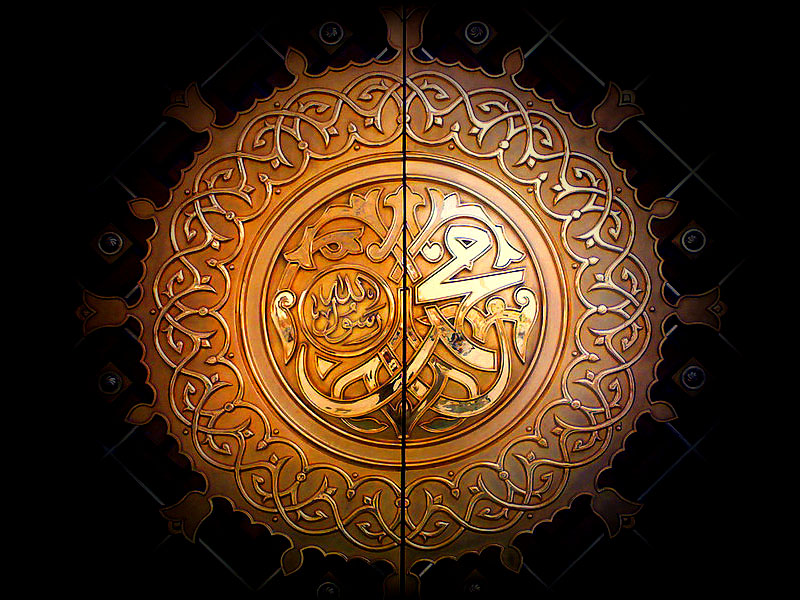Mohamed nejznámější citáty
Mohamed: Citáty anglicky
Riyad as Saliheen 486 https://bewley.virtualave.net/riyad3.html|
Sunni Hadith
Fadhlul Qur’an, Page 599
Shi'ite Hadith
Mustadrak al‑Wasail, vol 10, pg. 318
Shi'ite Hadith
Sunni Hadith
Riyadh-as-Saliheen by Imam Al-Nawawi, volume 3, hadith number 322
Sunni Hadith
Thawabul A’mal, Page 234
Shi'ite Hadith
Wasa’ilush Shi’a, Volume 4, Page 85
Shi'ite Hadith
As quoted in Al-Jaami' al-Saghîr by Imam al-Suyuti, where it is declared a "weak Hadith".
Variant translations:
The ink of the scholar is holier than the blood of the martyr.
The Islamic Review, Vol. 22 (1934), p. 105, edited by Khwajah Kamal al-Din
The ink of scholars will be weighed in the scale with the blood of martyrs.
As quoted in Knowledge of God in Classical Sufism: Foundations of Islamic Mystical Theology (2004) by John Renard
Sunni Hadith
Kanzul `Ummal, Volume 7, Tradition 18859
Shi'ite Hadith
Narrated Abu Huraira, in Bukhari, Volume 5, Book 59, Number 440
Sunni Hadith
Biharul Anwar, Volume 82, Page 231
Shi'ite Hadith
Riyadh-as-Saliheen by Imam Al-Nawawi, volume 4, hadith number 531
Sunni Hadith
Chain of transmission: Sulayman ibn Harb ⟶ Shu'ba ⟶ Amr ⟶ Abu Wael ⟶ Abu Musa note: Note 1: the translation was published by the Islamic University of Madinah and many have associated the university with the Wahhabi Salafi ideology, and have stated it has exported Salafi-inclined theologians around the world. The chain of transmission are not present in the translation and the content inside parentheses are commentaries by the translator not present in the Arabic text. note: Note 2: "Allah's Word" (Arabic: كَلِمَةُ اللَّهِ; kalimat Allāh) could refer to the concept of the logos. The word "aleulya" (الْعُلْيَا) can also be translated as "highest". note: Sunni Hadith
Originál: (ar) حَدَّثَنَا سُلَيْمَانُ بْنُ حَرْبٍ، حَدَّثَنَا شُعْبَةُ، عَنْ عَمْرٍو، عَنْ أَبِي وَائِلٍ، عَنْ أَبِي مُوسَى ـ رضى الله عنه ـ قَالَ جَاءَ رَجُلٌ إِلَى النَّبِيِّ صلى الله عليه وسلم فَقَالَ الرَّجُلُ يُقَاتِلُ لِلْمَغْنَمِ، وَالرَّجُلُ يُقَاتِلُ لِلذِّكْرِ، وَالرَّجُلُ يُقَاتِلُ لِيُرَى مَكَانُهُ، فَمَنْ فِي سَبِيلِ اللَّهِ قَالَ " مَنْ قَاتَلَ لِتَكُونَ كَلِمَةُ اللَّهِ هِيَ الْعُلْيَا فَهُوَ فِي سَبِيلِ اللَّهِ ".
Zdroj: Sahih al-Bukhari, compiled by Muhammad al-Bukhari. Translated into English by Muhammad Muhsin Khan in The Translation of the Meanings Of Sahih Al-Bukhari, Volume 4, Book 52, Number 65 https://archive.org/stream/nabeel_Vol1_201703/Vol%204#page/n120/mode/1up, 1971. The Arabic text used for this work is from Fath Al-Bari, a multi-volume commentary on the Sunni hadith collection Sahih al-Bukhari, composed by Ibn Hajar al-'Asqalani in the 15th century, published by the Egyptian Press of Mustafa Al-Babi Al-Halabi in 1959.
Riyadh-as-Saliheen by Imam Al-Nawawi, volume 3, hadith number 470
Sunni Hadith
Sunni Hadith
Riyadh-as-Saliheen by Imam Al-Nawawi, volume 3, hadith number 471
Sunni Hadith
[9, 83, 37]
Sunni Hadith
Riyadh-as-Saliheen by Imam Al-Nawawi, volume 5, hadith number 1043
Sunni Hadith
Varianta: Jabir reported that the Messenger of Allah, may Allah bless him and grant him peace, said, "The metaphor of the five prayers is that of an sizeable flowing river at the door of one of you in which he washes five times every day."
Riyadh-as-Saliheen by Imam Al-Nawawi, volume 2, hadith number 222
Sunni Hadith
[5, 59, 512]
Sunni Hadith
by means of prayers
Kanzul `Ummal, Volume7, Tradition 18973
Shi'ite Hadith
Riyadh-as-Saliheen by Imam Al-Nawawi, volume 1, hadith number 147
Sunni Hadith
Riyadh-as-Saliheen by Imam Al-Nawawi, volume 2, hadith number 277
Sunni Hadith
Muwatta of Malik ibn Anas, chapter 58, hadith number 4
Sunni Hadith
Riyadh-as-Saliheen by Imam Al-Nawawi, volume 4, hadith number 614
Sunni Hadith
Riyadh-as-Saliheen by Imam Al-Nawawi, volume 4, hadith number 578
Sunni Hadith
Irshadul Qulub; Page 78
Shi'ite Hadith
Riyadh-as-Saliheen by Imam Al-Nawawi, volume 4, hadith number 664
Sunni Hadith
Hadith - Bukhari 4:531, Narrated by 'Aisha
Sunni Hadith
